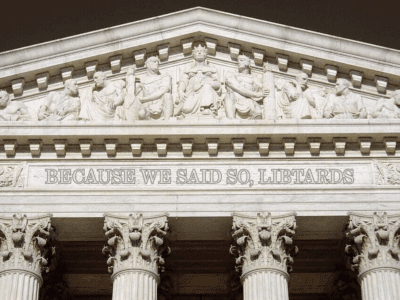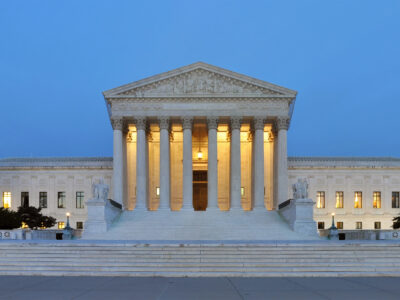Don’t Panic About the Supreme Court’s Ruling on Universal Injunctions
The Court left open a variety of workarounds. At least for the now.
In a case involving birthright citizenship, Trump v. CASA, the Court limited the power of judges to issue universal injunctions that protect everyone subject to an illegal government policy. President Trump hailed this outcome as a great victory, and it does provide more maneuvering room for him and future presidents. But the Court’s reasoning does not directly implicate most judicial rulings about the legality of regulations. The Court also left open some important questions that will be furiously litigated in the lower courts or the Supreme Court itself.
Justice Barrett’s opinion for the Court was an interpretation of the 1789 Judiciary Act. She read the act as limiting injunctions to give complete relief to the parties to a case, not the public at large. Thus, an undocumented woman expecting to give birth in the United States would be fully protected by an order requiring the government to treat her child as a citizen.
One positive thing about this ruling could be to make judge shopping a little less effective. Conservatives were able to block Biden’s actions nationwide by going to a MAGA judge in Texas who always obliged with a universal injunction. That will be harder to do in the future.
Despite this benefit, severe limits on the availability of injunctions would make it much harder to block illegal government actions. Fortunately, the Court’s opinion came with exceptions and possible qualifications.
Justice Barrett recognized one clear exception: class actions. Moreover, in a case earlier this year, the Court ruled that a judge can issue preliminary relief to benefit a class even before it has certified the class. There will no doubt be litigation about procedural issues relating to class actions, but this does provide a real alternative to the universal injunction. Indeed, the ACLU immediately refiled its challenge to Trump’s birthright citizenship order as a class action.
Fortunately, the Court’s ruling does not apply to the overwhelming number of challenges to government regulations. The Court’s ruling involved only the 1789 Judiciary Act. Challenges to agency regulations are brought under modern laws — usually the Administrative Procedure Act but sometimes section 307 of the Clean Air Act or other laws. Those laws are more broadly phrased. The Administrative Procedure Act allows a court to “set aside” an administrative action such as issuance of a regulation. Even more pointedly, the Clean Air Act says a court can “reverse” the challenged action. These provisions have been interpreted to wipe an illegal regulation off the books, not merely block its application to the person bringing the lawsuit.
Those laws apply only to agencies, not the President, which is why the 1789 law was crucial to challenging an executive order. But executive orders, including the birthright citizenship order, ultimately need to be implemented by government agencies, and those agencies are subject to laws like the Administrative Procedure Act.
Although it’s not technically an exception — the injunction will still protect only certain people — the Court has recognized that organizations can bring actions on behalf of their members. This could allow injunctions protecting thousands of organization members in a single case. In some cases, the practical effect could be a universal injunction. It’s hard to imagine an injunction that applied everywhere a Sierra Club or ACLU member liveds but nowhere else.
Finally, there are two unsettled issues. First, when is a universal injunction required to give the party challenging a government order complete relief? Sometimes, it will be impossible to give one person relief without affecting everyone. For instance, a challenge to a state’s reapportionment plan requires redrawing the map, not changing the rules for one person. As the Court recognized, lawsuits brought by state governments are particularly likely to raise this issue, because the state’s harm may not be redressable by an order covering only specific individuals. Unfortunately, the Court passed up the opportunity to clarify the treatment of injunctions sought by organizations on behalf of their members. Even though states were parties in the birthright citizenship case, the Court chose to punt and send this issue back to the lower courts.
Second, Justice Kavanaugh questioned whether the rule against universal decrees applies to the Supreme Court itself. He makes some broad policy arguments for this position but doesn’t provide much legal support for giving the Supreme Court special authority. Still, it’s possible that such a legal argument could be made. Or that the Supreme Court would adopt that approach for pragmatic reasons (or, more cynically, just to expand its own power). The Court didn’t discuss this issue but seemed to silently agree with Justice Kavanaugh, since it decreed that Trump’s executive order could not take effect for 30 days.
The bottom line is that the Supreme Court’s ruling makes it harder to get universal injunctions. But so far, such injunctions — or their practical equivalents — still seem to be available under many circumstances.







Reader Comments